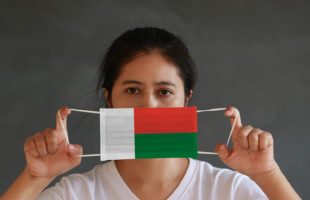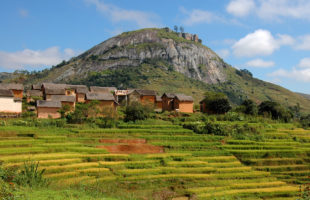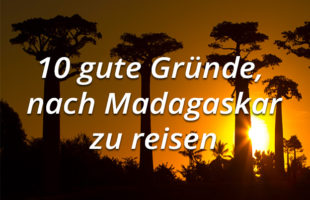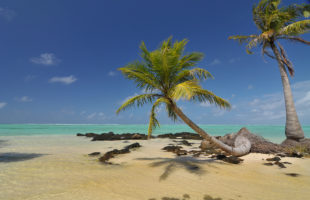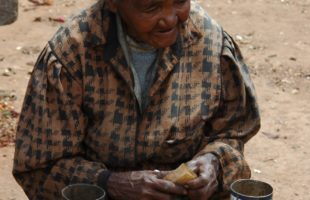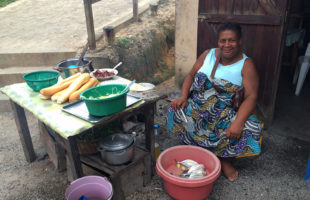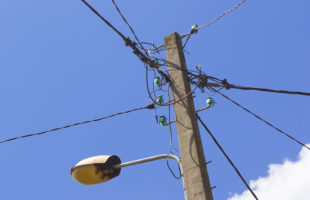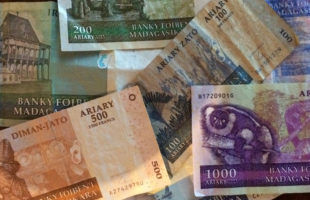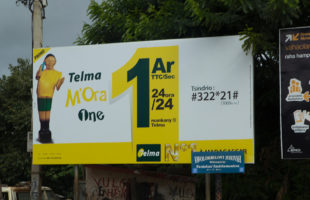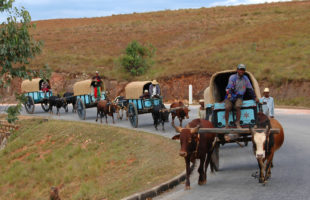The coronavirus (SARS-CoV-2, the abbreviation for severe acute respiratory syndrome coronavirus-2) has been keeping the whole world in suspense for more than two years. With the pandemic, travel to and in Madagascar had also been severely restricted. This page shows the current state of affairs on the island. Can I travel to Madagascar again? Last update: 21st October 2024 Yes! …
LesenThe climate in Madagascar
Madagascar is an island with many faces and also with the climate this saying is more than true. Madagascar’s climate is dominated by the Indian Ocean, which sends trade winds throughout the year. These meet in Madagascar with different cave locations, protective mountain ranges, and unprotected offshore islands, which create very different climates. The dry and rainy season The climatic …
Lesen10 good reasons to travel to Madagascar
#1 Baobabs: Madagascar’s legendary Baobab Alley is located in the west of the island. The mighty trees with their impressive silhouettes are famous all over the world. On Madagascar there are seven different species of Baobabs, on earth, there are only eight species in total. Discover the Baobab forests of Andavadoaka and visit the “Mother of the forest” in Tsimanampetsotsa! …
LesenThe best travel season
Madagascar has the perfect travel time for everyone, but it is not the same time of year for everyone. Because it all depends on what you want to see! If you want to see Madagascar’s mascot, the lemurs, you should come to Madagascar at the end of the dry season. The best time to observe lemurs is September and October. …
LesenMora mora – Take it easy
Hectic, stress and urgent appointments: In Madagascar you can leave all this behind you. Time is of no use here outside the cities. “Mora mora” is often the first thing you hear as a traveller in Madagascar – often at the visa counter. It means “slow, slow” or “take it easy” and reflects briefly and concisely the attitude to life …
LesenDos and don’ts in Madagascar
Dos Respect the local fadys. They are extremely important to Madagascans and it would be very rude to hurt them. Try to speak or learn a few words of Madagascan. Salama as an omnipresent greeting (in the north: Mbola tsara, on the islands of the east coast Akoriaby) is always welcome, and also Azafady (please, excuse me) and Misaotra (thank …
LesenPower & electrictiy
The electricity grid in Madagascar is poorly developed. Only larger cities have electricity connections. The major suppliers are JIRAMA, HydElec, HFF (Henri Fraise fils & Cie) and QMM (Rio Tinto QMM), the latter two being only available in Antananarivo and Tolagnaro (Fort Daupin). There are also smaller suppliers that operate small waterworks or individual solar panels, for example. JIRAMA is …
LesenCurrency and exchange
Currency Since 2002 you pay in Madagascar in Ariary (MGA) and no longer in Franc Malgache (FMG). Similar to how a few people in Germany still convert to Deutsche Mark, some Madagascans still write FMG on their price boards – the conversion works as follows: 5 FMG = 1 MGA. If a price on the street seems unrealistically high, it …
LesenInternet, phone and wifi
Telephone and mobile networks The telephone network in Madagascar is increasingly being expanded but is still inadequate in many places. The international prefix for Madagascar is 00 261, followed by a two-digit access code, depending on which landline network you want to call. This is followed by the two-digit regional area code and the actual five-digit landline number. The fixed …
LesenTipping
Tipping is usual among travelers in Madagascar although a topic that has caused anxiety, too. This mainly concerns the payment of guides in national parks and reserves, but also drivers. Luggage carriers in hotels or parking lot attendants are also happy about a small tip – many of them earn their daily salary solely through it. On day trips, in …
Lesen MADAMAGAZINE Your Magazine about Madagascar
MADAMAGAZINE Your Magazine about Madagascar
